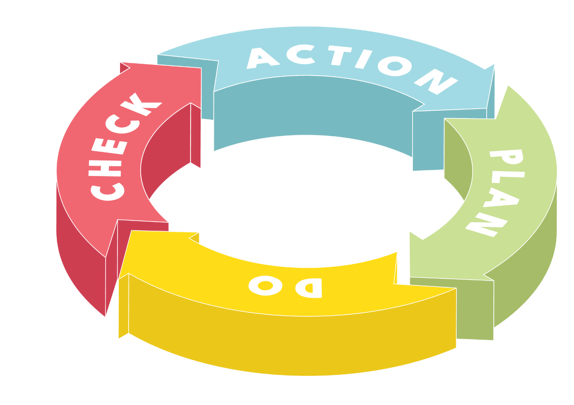Meet the Experts
Through the Foundation’s trusted supervision, the EU Health Certificate upholds an excellent standard of quality control in vitality measurement, offering organisations a recognized and respected endorsement of their commitment to workplace vitality and employee well-being. Meet the experts...
- Respected professionals with deep expertise in vitality, social medicine, education, and quality assurance.
- Highly regarded academics and industry leaders, recognized for their commitment to advancing standards in workplace vitality.
- Experts providing guidance, oversight, and quality improvements rooted in the latest research and best practices.

Inge Houkes
Inge Houkes is an associate professor of Work and Health at the Department of Social Medicine at Maastricht University.

Erica Baarends
Quality improvement and innovation expert in the field of health.

Ruud Gerards
Deskundige in Fysiotherapeutisch onderwijs, preventie, en bedrijfshulpverlening
Inge Houkes

Inge Houkes
Inge Houkes is an associate professor of Work and Health at the Department of Social Medicine at Maastricht University.

Erica Baarends
Quality improvement and innovation expert in the field of health.

Ruud Gerards
Deskundige in Fysiotherapeutisch onderwijs, preventie, en bedrijfshulpverlening
Inge Houkes is an associate professor of Labor and Health at the Department of Social Medicine at Maastricht University. She is coordinator of the master's program Occupational Health & Sustainable Work of the FHML (Faculty of Health, Medicine and Life Sciences) and also teaches about work and health, and social security within the European Public Health, Health Sciences and Medicine courses. Her research focuses on sustainable employability, vitality and health of workers. Within her research, she focuses on a dialogue-driven and work environment-oriented approach, in which collaboration between science and practice plays an important role. Based on this expertise, she is committed to the QConV Foundation and will focus in particular on the scientific substantiation of OperaSana's services and products.
Erica Baarends
Erica Baarends is an expert in the field of quality improvement and innovation in the field of health. Project-based work, applying knowledge, (encouraging the) use of the principles of Evidence Based Practice and conducting/supervising practice-oriented research is a common thread throughout her career. In her role for the foundation, she uses her ability to think critically, questioning OperaSana positively so that everything remains shaped and substantiated scientifically, theoretically and on the basis of practical expertise.
Ruud Gerards
Ruud Gerards, a retired physiotherapist, dedicated over forty years to teaching physiotherapy, with a strong emphasis on prevention in both sports and workplace settings. As a co-founder of the Prevention Centre at Zuyd University of Applied Sciences, he played a pivotal role in making sports prevention accessible to students, bridging theoretical knowledge with practical application. On a national level, Ruud served as Secretary and Treasurer for the Foundation for Physiotherapy Program Consultations, where he championed the role of prevention as a core responsibility of physiotherapists. In addition to his teaching and advocacy, Ruud contributed to the well-being and safety of staff and students as the Head Team Leader for Emergency Response (BHV) at Zuyd University of Applied Sciences, focusing on improving working conditions and ensuring a safe environment for all.
The VitOScan Methodology
The VitOScan method is grounded in a robust foundation of diverse theoretical models, supported by both Dutch and international research, ensuring a scientifically rigorous approach to vitality assessment and quality improvement in the workplace.
Science-Based Questionnaire
Each question in the VitOScan’s self-assessment includes a specific rationale and reference to relevant literature, providing scientific justification and context for respondents. The questionnaire is reviewed and updated annually.
Core Theoretical Models Supporting the VitOScan
Environment-Oriented Approach (Prof. S. Kremers)
Recent research underscores the powerful role of environment in shaping individual behavior, with Prof. Stef Kremers noting that 85% of behavior is driven by surroundings/environmental factors rather than personal choice. The VitOScan focuses on the work environment, demonstrating that a healthy workplace significantly enhances employee health, well-being, and reduces disability risk.
Social Exchange Theory (Blau & Emerson)
This theory, widely studied by KU Leuven, highlights that supportive, reciprocal relationships between employers and employees foster loyalty, leading to greater engagement, reduced absenteeism, and lower turnover—key factors in enhancing workplace vitality.
Job Demands-Resources Model (Demerouti et. al.)
This model illustrates how investment in employee autonomy, control, and resources boosts their motivation and productivity, positively impacting both well-being and organizational outcomes. This model is central to the VitOScan’s assessment, underscoring the role of resources in sustaining vitality.
Vitality Management Model (Tinka van Vuuren)
Introduced by Tinka van Vuuren in 2009, this model combines vitality, workability, and employability—core dimensions VitOScan uses to assess workplace health.
Theory of Change Management (J. Kotter)
Kotter’s change management theory stresses urgency as essential for change. The VitOScan applies this by quantifying the financial impact of impaired vitality/sustainable employability, highlighting the critical need for action amid Europe's workforce shortages.
Self-Determination Theory (Deci & Ryan)
The Self-Determination Theory emphasizes the importance of autonomy, competence, and relatedness in fostering intrinsic motivation and engagement. The VitOScan incorporates these principles, focusing on enabling employees to feel autonomous and supported within the work environment, thereby enhancing their overall well-being and motivation.
The Definition of Vitality by TNO (Netherlands Organization for Applied Scientific Research)
The VitOScan employs TNO NL’s definition of vitality, which encompasses motivation, resilience, and positive energy as its core components.
Process Quality Management – PDCA Cycle
The VitOScan employs the Plan-Do-Check-Act (PDCA) cycle as a continuous improvement process for quality management. This iterative cycle includes ongoing evaluation, collecting feedback from various stakeholders, and integrating new evidence to inform actions that drive quality enhancements.
